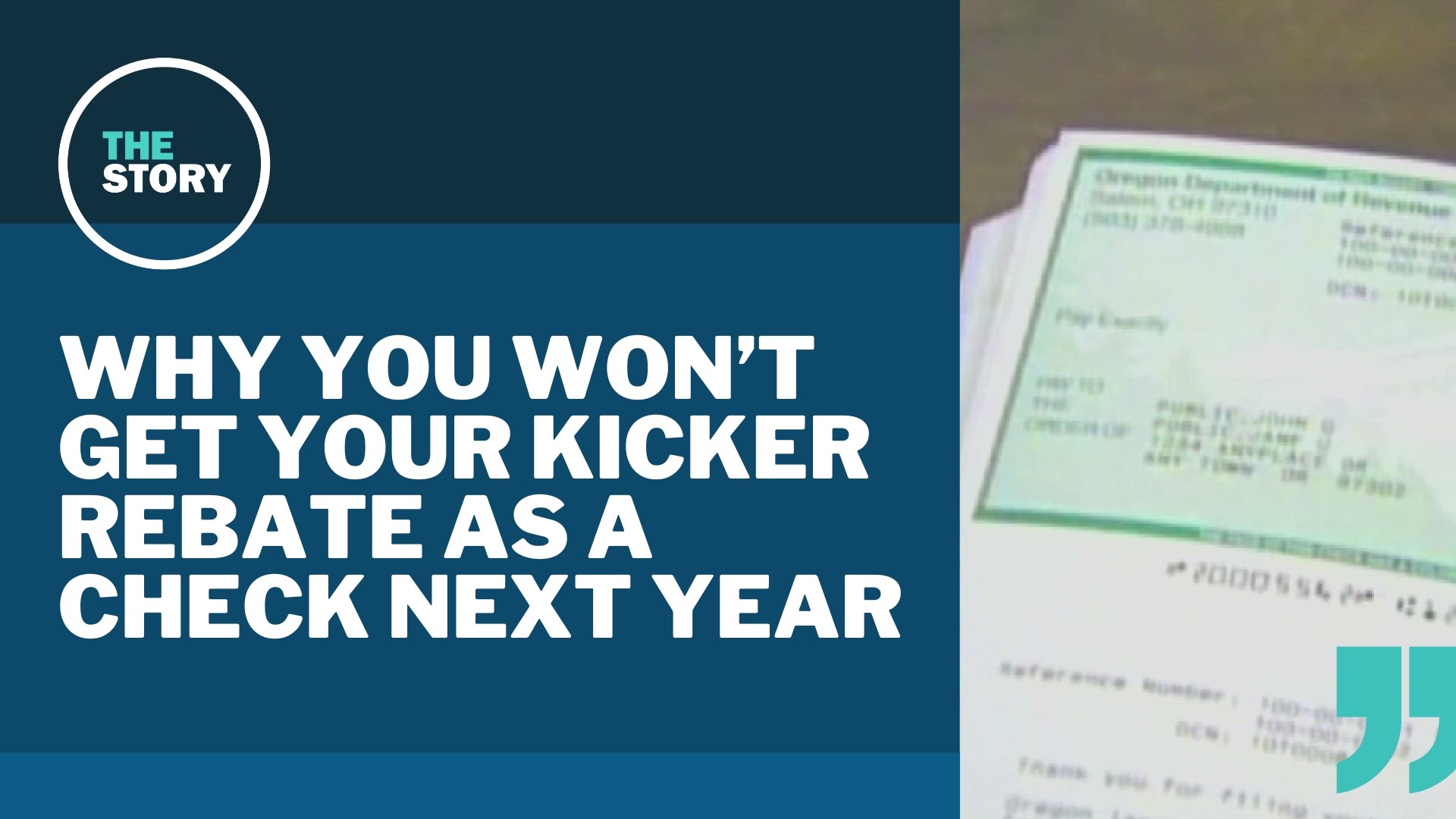SALEM, Ore. — Oregon residents learned last week that they're set to collectively receive a record-shattering $5.61 billion when they file their state taxes next year, courtesy of the state's oddball kicker rule.
The law states that if revenue over a two-year period is at least 2% above what state economists predicted at the start of the budget cycle, the surplus must be sent to taxpayers. In this case, 2021-23 revenue came in a whopping 44.28% above projections, so each individual taxpayer can expect a tax credit equal to about 44.28% of what they paid in state taxes for 2022.
But why does the kickback have to come in the form of a tax credit? Oregonians who have been working in the state since at least the mid-2000s probably remember that it used to come as a physical check.
Multiple viewers have written to KGW's The Story to ask why the checks aren't still in use, and whether Oregonians who would prefer to receive a check have any option to request one.
THE QUESTION
Is it possible for Oregonians to receive their kicker credits in the form of physical checks?
THE SOURCES
THE ANSWER
No, current Oregon law does not allow the kicker to be sent out as a check. The state legislature changed the distribution method to a tax credit in 2011, and the legislature would have to pass another law to change it back or add checks as an option.
WHAT WE FOUND
The Oregon legislature created the kicker law in 1979, and voters approved it twice; first in 1980 when they signed off on the legislature's decision, and then again in 1999 when they voted to bake most of the law's language directly into the Oregon Constitution.
The kicker actually started out as a tax credit, much like how it works today, but in 1995 the legislature passed a law changing the distribution method to physical checks that would be mailed out to voters, according to a summary of the kicker's history in a 2015 report from the Oregon Department of Revenue.
Physical checks were still the prevailing practice when the constitutional amendment passed in 1999, but the language added to the constitution itself didn't make the checks mandatory — it left the distribution logistics up to the legislature, giving elected officials the option to move away from checks in the future.
State lawmakers did just that in 2011 with House Bill 3543, which switched back to the tax credit formula. The goal was to save money, according to a legislative staff analysis of the bill. The administrative costs of distributing the kicker are deducted from the kicker fund itself, and the bill analysis stated that mailing out physical checks for the 2007 kicker — at the time the most recent — had cost the Oregon Department of Revenue about $900,000, or about 0.8% of that year's fund.
Distributing the kicker refunds as a tax credit allows them to be folded into the existing process when Oregonians pay their taxes, and the 2011 bill analysis mentions an amendment to the bill that set a new administrative cost cap of $250,000.
Since the law as written in the constitution doesn't place any limits on how the surplus funding will be distributed, the legislature could always change its mind again and pass a new bill to bring back the physical checks — but unless it does so, the 2011 bill is the law of the land, and it requires the Oregon Department of Revenue stick to tax credits.

